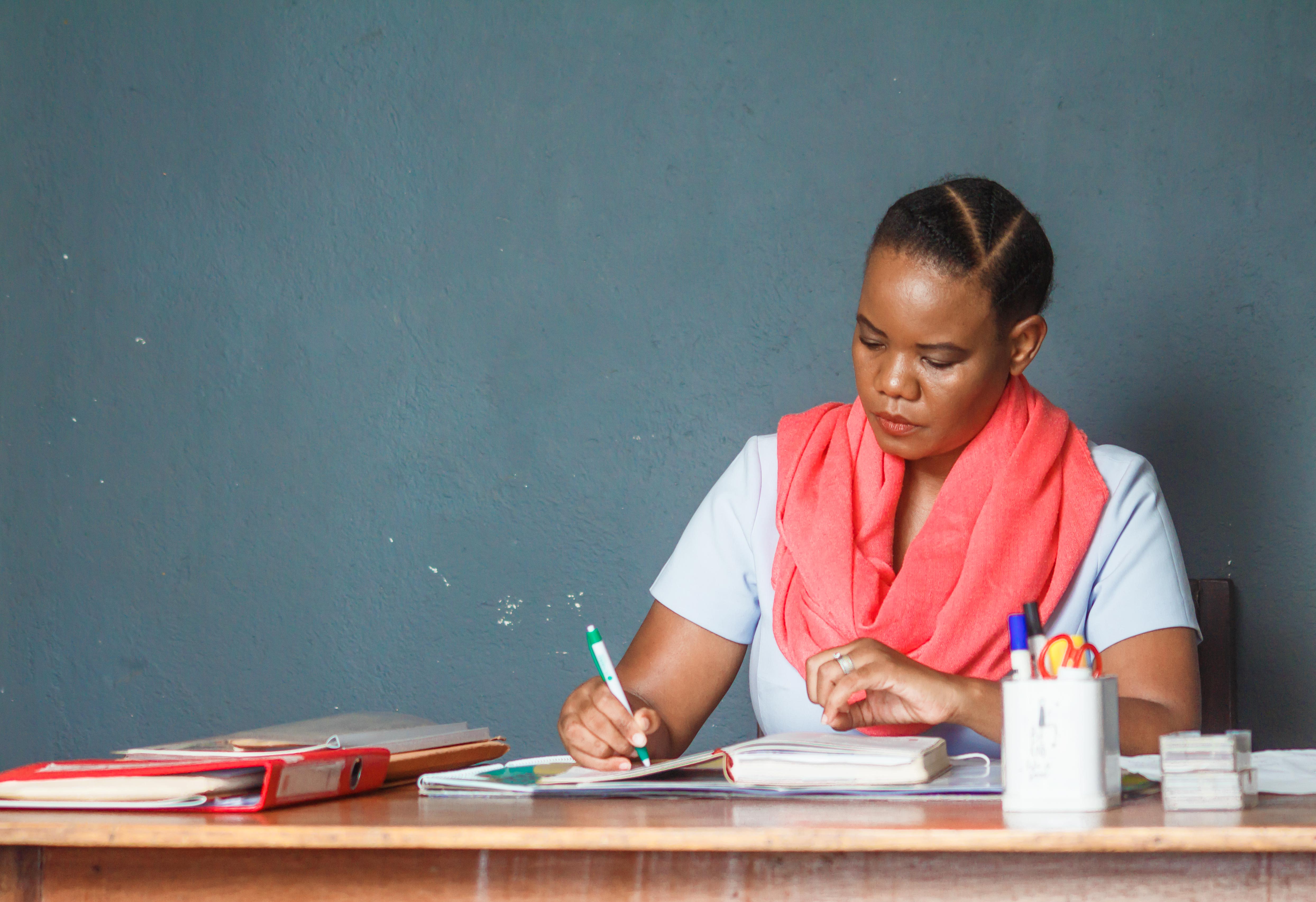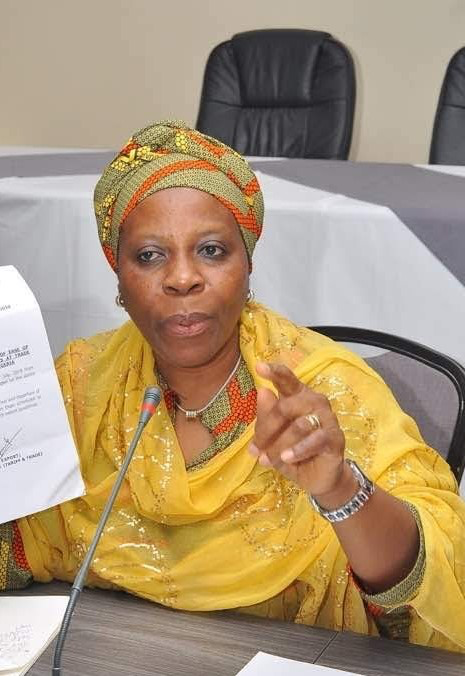
The global outbreak of COVID-19 continues to create significant challenges for everyone. For leaders operating at different levels of the economy, it has become a double-edged sword. This year, the Graça Machel Trust joined the rest of the world in commemorating International Women’s Day under the theme Women in leadership. We asked women in our networks to share their experiences as they continue to thrive and navigate around achieving leadership and equality during the pandemic. Here is what they had to say.
Work-life balance plays a significant role in leadership

Victoria Msowoya, Women in Agribusiness- Malawi
COVID-19 came as a surprise to everyone across the globe and has disrupted how many things are done. On the business front, MSMEs have not been spared and leading in these times requires that one is adaptive to change, bold and focused. For a leader to succeed in times like now, there is a need to effectively manage time to still come up with intended results for whatever tasks present themselves. We are constantly swamped with different kinds of virtual obligations; sometimes, it is a challenge to identify which is essential. While managing time, it is critical to know and differentiate urgent and essential tasks, thereby deciding what task to tackle first as deadlines still have to be met. It is results that separate being busy and being productive.
As a leader at this time, I have to show results. Work-life balance plays a significant role in leadership because I divide my time between social activities, business activities and family. I manage procrastination by actually doing those things that were permanently shelved. Having empathy is also required while still keeping the eyes on the ball. Being an already challenging time due to deaths, some jobs/positions will have to be cut. This is not an easy task but has to be done. Maybe instead of completing termination, work out an arrangement where wages and other benefits could be minimised until things get better. Help those that have lost their loved ones get back through counselling support, among other things.
Thriving through resilient and pragmatic leadership

Aishatu Debola Aminu- New Faces New Voices Country Lead, Nigeria.
Nigeria is a double barrel nation; with COVID-19, the economy was affected due to the drop of global oil price, which was our significant foreign exchange earnings. Entrepreneurship and Trade contribute to about 60% of employment, now with a double-barrel situation in Nigeria. It called for pragmatic leadership to foster resiliency, grit and innovation in hard times like these to emerge more vigorous post the pandemic. This is what we use in New Faces New Voices Nigeria Chapter for women entrepreneurs to thrive in a global pandemic such as COVID-19.
I put certain unusual leadership qualities into practice for the Steering Committee, Members including our Youth Impact Team, to thrive in these difficult times. These include love, passion with courage, innovation, perseverance and grit! by God’s Grace. These leadership traits were evident at the peak of the global pandemic in programmes, initiatives and contacts, and foster relationships for empowerment and enhanced networking of our women entrepreneurs.
Create positive spaces for women to eliminate doubt and fear

Mulalo L Nethanani
International Woman’s Day throughout the years has developed a mindset that my voice matters towards inclusive nation-building that is based on Economic, Social, Cultural, Political Achievement. Culture has contributed to inequality through certain traditional practices and norms that stipulate that women are only suitable for managing households and should not get involved in professional work fields and strive for independence. With that said, women’s occupation in executive leadership positions will allow them to make a sustainable change since they understand how to create laws and constitutions that protect females entirely.
The COVID world has contributed to significant disruption with women violence increasing daily and contributing to physical and emotional abuse, leading to higher death rates. We must, as such, create positive spaces which eliminate doubt and fear as a part of us getting equality for women during Covid-19. We should also encourage girls to get involved in different programs/volunteering/internship and discussions to enable change by bringing a solution.
Implement systems to achieve leadership and equality for adolescent girls

Mina Madlala- GMT Adolescent Network, South Africa.
This lived reality is not one I share on my own but by young women globally. With some young women having to even drop-out from school altogether, 20 million more secondary school girls could be out of school following the pandemic, according to the Malala Fund. Added to the weight of domestic duties and care, It’s been estimated by UNICEF that at least 463 million (31%) of schoolchildren worldwide cannot be reached by digital and broadcast remote learning programs enacted to counter school closures. Education directly impacts achieving leadership and equality. More women out of school mean fewer leadership roles upheld by women and the equality gap between men and women widening.
Because adolescent girls experience the most difficulties at home and in their communities, it is, therefore, the perfect place to start implementing systems that will help us achieve leadership and equality for adolescent girls in this COVID-19 world. I would like to see work more accessible to girls and more time invested in mentorship programmes that encourage girls to take up leadership spaces and equip them for that space in a holistic manner, focusing primarily on unshackling limitations built in the mind of the young women.
“The time of change is now! We should be bolder, more strategic, and more practical. We need to change radically to accelerate women leadership in African societies and economies. We are not only victims but we are makers of our own life and our future”- Mrs Graça Machel.










 The Trust supports and mobilises civil society networks on issues of ending child marriage, ending violence against children, ending female genital mutilation and promoting children’s rights, to carry out advocacy and action across Africa. Special focus is placed on Malawi, Mozambique, Tanzania and Zambia where child marriage continues to be a problem largely driven by poverty, gender inequality, harmful traditional practices, conflict, low levels of literacy, limited opportunities for girls and weak or non-existent protective and preventive legal frameworks.
The Trust supports and mobilises civil society networks on issues of ending child marriage, ending violence against children, ending female genital mutilation and promoting children’s rights, to carry out advocacy and action across Africa. Special focus is placed on Malawi, Mozambique, Tanzania and Zambia where child marriage continues to be a problem largely driven by poverty, gender inequality, harmful traditional practices, conflict, low levels of literacy, limited opportunities for girls and weak or non-existent protective and preventive legal frameworks.




 Education is a fundamental right for all children, which is also a vehicle for social, economic and political transformation in communities, countries and the African continent at large. Recent studies indicate a lack of progress in some of the critical commitments aimed at improving education quality, access, retention and achievement, particularly for girls. In most African countries, girls may face barriers to learning, especially when they reach post-primary levels of education. By implementing multi-dimensional approaches to education which includes core education, personal development, life skills and economic competencies, the Trust partners with funding partners, governments, civil societies and the private sector to improve education access.
Education is a fundamental right for all children, which is also a vehicle for social, economic and political transformation in communities, countries and the African continent at large. Recent studies indicate a lack of progress in some of the critical commitments aimed at improving education quality, access, retention and achievement, particularly for girls. In most African countries, girls may face barriers to learning, especially when they reach post-primary levels of education. By implementing multi-dimensional approaches to education which includes core education, personal development, life skills and economic competencies, the Trust partners with funding partners, governments, civil societies and the private sector to improve education access.

 The Nutrition and Reproductive, Maternal, New-born, Child and Adolescent Health and Nutrition, (RMNCAH+N) of the Children’s Rights and Development Programme aims at promoting the Global Strategy for women, children and adolescents’ health within the Sustainable Development Goals (SDG) agenda. The strategy emphasises on the importance of effective country leadership as a common factor across countries making progress in improving the health of women, children and adolescents.
The Nutrition and Reproductive, Maternal, New-born, Child and Adolescent Health and Nutrition, (RMNCAH+N) of the Children’s Rights and Development Programme aims at promoting the Global Strategy for women, children and adolescents’ health within the Sustainable Development Goals (SDG) agenda. The strategy emphasises on the importance of effective country leadership as a common factor across countries making progress in improving the health of women, children and adolescents. Through its Early Childhood Development (ECD) plan, The Trust will seek to put into action the new science and evidence Report that was presented by Lancet Series on Good and early development – the right of every child. This will be achieved by mobilising like-minded partners to contribute in the new science and evidence to reach all young children with ECD. The Trust’s goal is to be a catalyst for doing things differently, in particular, to rid fragmentation and lack of coordination across ECD sectors. In response to evidence showing the importance of political will in turning the tide against the current poor access and quality of ECD. Even before conception, starting with a mother’s health and social economic conditions, the early years of a child’s life form a fundamental foundation that determines whether a child will survive and thrive optimally.
Through its Early Childhood Development (ECD) plan, The Trust will seek to put into action the new science and evidence Report that was presented by Lancet Series on Good and early development – the right of every child. This will be achieved by mobilising like-minded partners to contribute in the new science and evidence to reach all young children with ECD. The Trust’s goal is to be a catalyst for doing things differently, in particular, to rid fragmentation and lack of coordination across ECD sectors. In response to evidence showing the importance of political will in turning the tide against the current poor access and quality of ECD. Even before conception, starting with a mother’s health and social economic conditions, the early years of a child’s life form a fundamental foundation that determines whether a child will survive and thrive optimally.